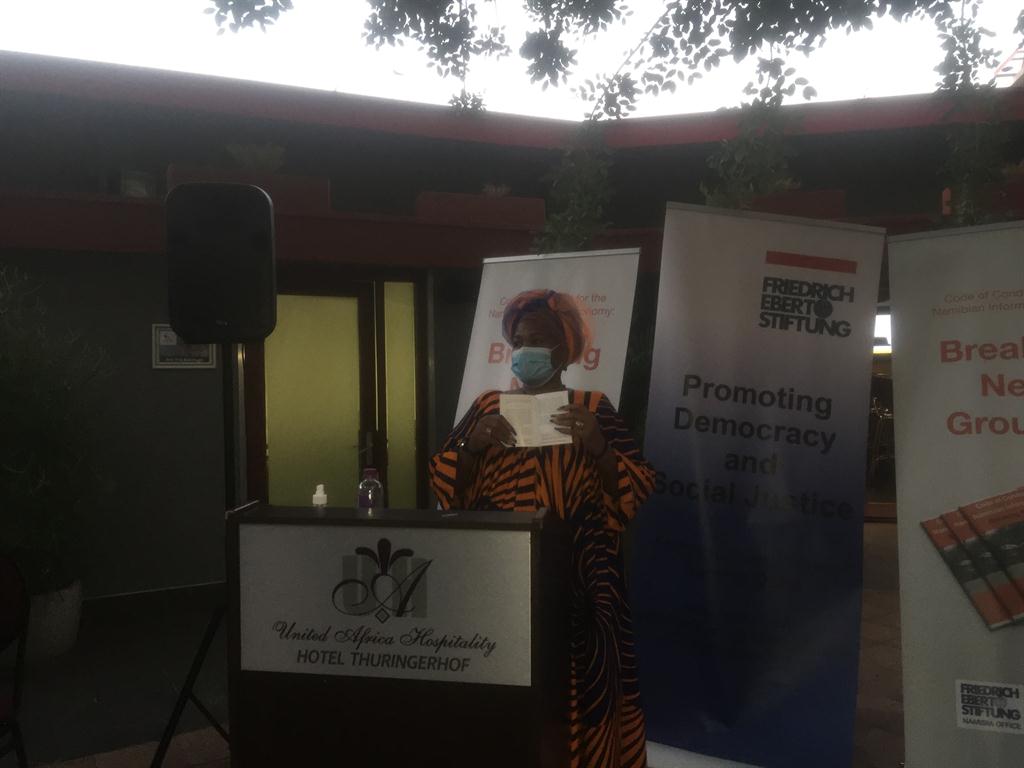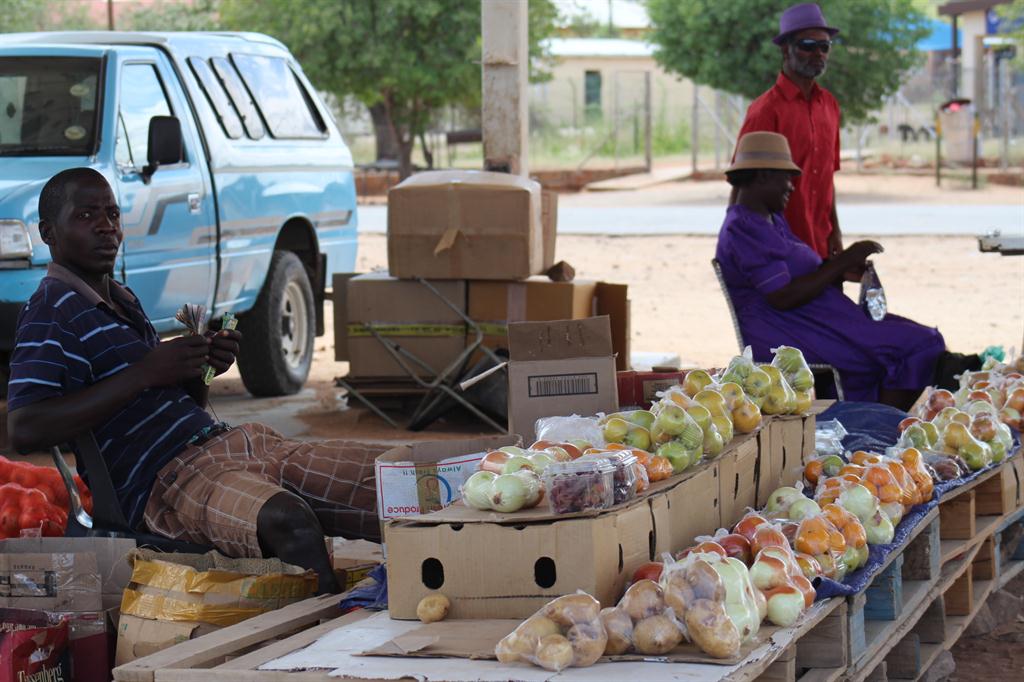An inclusive informal economy crucial
The informal economy, amongst others, faces challenges such as police harassment, evictions of stock confiscation and lake of inclusion in decision making.
PHILLEPUS UUSIKU
The informal sector in Namibia, which is regarded at the backbone of the economy, lacks formal recognition in policies, is unregulated and suffers from lack of interventions such as formal training, infrastructure and access to markets.
The Namibia Informal Sector Organization (NISO), in partnership with the Friedrich-Ebert-Stiftung (FES), launched on Tuesday the code of conduct for the Namibian informal economy.
The code sets standards of operations in the informal economy and regulate interactions amongst the various actors and stakeholders in the informal economy.
The code of conduct launched is based on seventeen (17) principles and was developed through a consultative process with the informal traders, local authorities and government officials to address the challenges that informal traders are experiencing in their daily operations.
The challenges that were highlighted from the informal trader’s perspective were amongst others, lack of structural relationships and communication channels with local authorities, a general lack of access to information, non-participation and inclusion in decision making processes affecting the informal economy.
In addition, police harassment, evictions and stock confiscation, abuse of power by law enforcement officials, too much bureaucracy, lack of understanding of municipal bylaws, rules, and regulations, inhumane and degrading treatment of informal economy operators by municipal officials was also highlighted.
Lastly, restriction of the informal economy, and government’s inaction and indecisiveness on policy guidelines regarding the informal economy in the country was also pointed out.
Transformation
Speaking at the launch, Laura Mcleod Katjirua, Regional Governor of Khomas Region, said she is convinced that this code will go a long way to transform the informal economy from informality to formality.
“I am aware that the Ministry of Industrialisation and Trade is in the process of developing a policy for the informal economy. The code that NISO developed, therefore comes at the right time. The code neatly captures the needs and challenges for the informal economy operators, and other relevant stakeholders in the sector. The issues raised in the code, undoubtedly, must inform and find expression in the envisaged policy,” she said.
Meanwhile, Sylvia Mundjindi, Project Manager at Friedrich-Ebert-Stiftung, pointed out that in order to enable informal traders to access and make use of the 17 principles outlined the booklet, FES and NISO has made an effort to translate the code of conduct in two local languages, namely Oshikwanyama and Rukavango.
“I challenge NISO to source funding to translate the code in more local languages. Remember, no with should be left out,” the governor commented.
NISO has been conducting consultation meetings with the government and the local authorities to get the buy in of the code of conduct and to solicit inputs for the operationalisation of the guideline for the code of conduct. A memorandum of understanding is also expected to be signed between stakeholders in order to ensure implementation of the code of conduct, Mundjindi said.
Lastly, the project manager thanked John Nakuta for developing the code of conduct and completing the project successfully as well as the representatives of local authorities, government and informal traders who were interviewed and provided the content to the development of the code of conduct. [email protected]
The informal sector in Namibia, which is regarded at the backbone of the economy, lacks formal recognition in policies, is unregulated and suffers from lack of interventions such as formal training, infrastructure and access to markets.
The Namibia Informal Sector Organization (NISO), in partnership with the Friedrich-Ebert-Stiftung (FES), launched on Tuesday the code of conduct for the Namibian informal economy.
The code sets standards of operations in the informal economy and regulate interactions amongst the various actors and stakeholders in the informal economy.
The code of conduct launched is based on seventeen (17) principles and was developed through a consultative process with the informal traders, local authorities and government officials to address the challenges that informal traders are experiencing in their daily operations.
The challenges that were highlighted from the informal trader’s perspective were amongst others, lack of structural relationships and communication channels with local authorities, a general lack of access to information, non-participation and inclusion in decision making processes affecting the informal economy.
In addition, police harassment, evictions and stock confiscation, abuse of power by law enforcement officials, too much bureaucracy, lack of understanding of municipal bylaws, rules, and regulations, inhumane and degrading treatment of informal economy operators by municipal officials was also highlighted.
Lastly, restriction of the informal economy, and government’s inaction and indecisiveness on policy guidelines regarding the informal economy in the country was also pointed out.
Transformation
Speaking at the launch, Laura Mcleod Katjirua, Regional Governor of Khomas Region, said she is convinced that this code will go a long way to transform the informal economy from informality to formality.
“I am aware that the Ministry of Industrialisation and Trade is in the process of developing a policy for the informal economy. The code that NISO developed, therefore comes at the right time. The code neatly captures the needs and challenges for the informal economy operators, and other relevant stakeholders in the sector. The issues raised in the code, undoubtedly, must inform and find expression in the envisaged policy,” she said.
Meanwhile, Sylvia Mundjindi, Project Manager at Friedrich-Ebert-Stiftung, pointed out that in order to enable informal traders to access and make use of the 17 principles outlined the booklet, FES and NISO has made an effort to translate the code of conduct in two local languages, namely Oshikwanyama and Rukavango.
“I challenge NISO to source funding to translate the code in more local languages. Remember, no with should be left out,” the governor commented.
NISO has been conducting consultation meetings with the government and the local authorities to get the buy in of the code of conduct and to solicit inputs for the operationalisation of the guideline for the code of conduct. A memorandum of understanding is also expected to be signed between stakeholders in order to ensure implementation of the code of conduct, Mundjindi said.
Lastly, the project manager thanked John Nakuta for developing the code of conduct and completing the project successfully as well as the representatives of local authorities, government and informal traders who were interviewed and provided the content to the development of the code of conduct. [email protected]






Comments
Namibian Sun
No comments have been left on this article